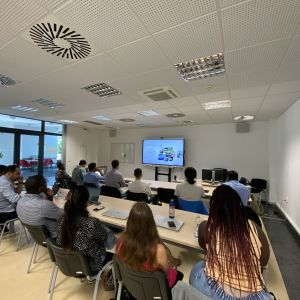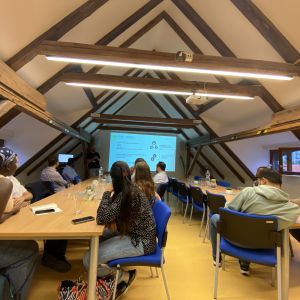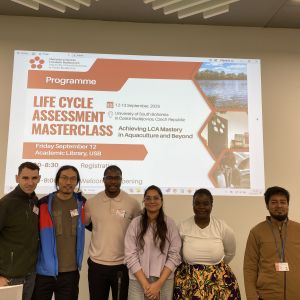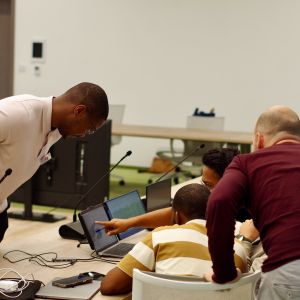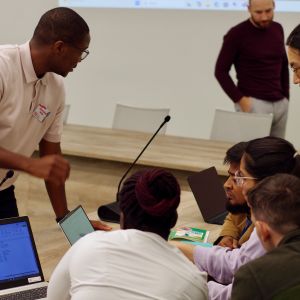An LCA workshop was held at the university
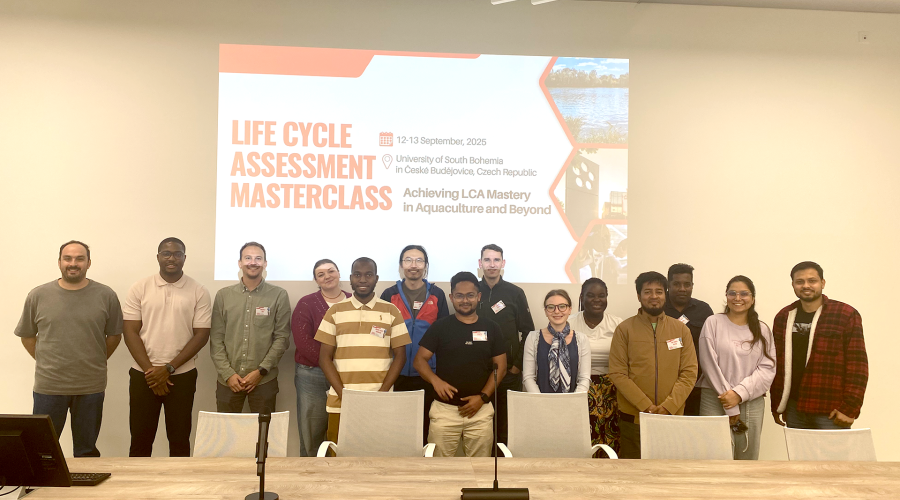
Deep-diving into Life Cycle Assessment at the University of South Bohemia – A retrospective
Acquiring first-hand knowledge on how to do Life Cycle Assessment (LCA) in aquaculture and beyond – this was possible at the University of South Bohemia during the Life Cycle Assessment Masterclass in Aquaculture and Beyond. Participants from Czech, German, and Austrian research institutions and companies attended the first event of its kind to be introduced into the world of Life Cycle Assessment by experts in the field. Held over two days (September 12 and 13), the workshop combined theoretical insights, practical training, and collaborative discussions, providing a dynamic learning environment.
The workshop’s “life cycle”
The workshop started with an insightful introduction to the environmental impact of aquaculture by Killian Chary (CIRAD, France), who emphasised the global interconnectedness of the industry. Eventually, Michele Zoli (University of Milan, Italy) provided a foundational introduction to Life Cycle Assessment, explaining its methodology, key terms, limitations, and application in environmental decision-making. The morning sessions were concluded by Joël Aubin (INRAE, France), who shared practical insights and tips for conducting successful LCAs, illustrated through a compelling case study on polyculture systems in the Philippines. His presentation highlighted context-specific challenges and solutions in aquaculture LCA. The afternoon continued with a deeper dive into LCA principles by Michele, followed by a practical LCA session using openLCA software and various databases by Chisenga Emmanuel Mukosha (FAT USB, Czechia). Participants worked in small groups to conduct their first exemplary LCA, gaining hands-on experience in modelling and data interpretation. The day concluded with an informal networking event at the University’s microbrewery, during which Jaroslav Bernas (FAT USB, Czechia) presented the work of the LCA Lab at the Faculty of Agriculture and Technology, while everyone enjoyed the relaxed atmosphere and provided catering.
The second day began with a continuation of the LCA training led by Emmanuel. The two groups formed on the first day delivered brief pitch presentations of their LCA results, fostering peer learning and feedback. Jaroslav eventually provided an overview of commercial LCA tools such as SimaPro, comparing their features, usability, and relevance to aquaculture applications. In the afternoon, Michele presented a series of LCA case studies related to aquaculture, offering broader insights into the versatility and impact of LCA in real-world scenarios. The workshop concluded with a round table session, where participants tested their newly acquired knowledge and engaged in an open discussion to clarify remaining questions and share reflections.
Some takeaways
The LCA Masterclass successfully combined theory with practical application and equipped the participants with insider knowledge for the application of LCA to their very own use cases in the context of sustainable aquaculture. This is confirmed by the countless questions asked and lively discussions during and in between the sessions, as well as the positive feedback from participants at the end of the event. We would like to thank all participants, and especially the excellent speakers who made this workshop an event of scientific excellence.
Thank you to the supporters
On a university level, this workshop showcased the potential of interfaculty collaboration. We would like to express our gratitude to the Faculty of Agriculture and Technology for providing access to the microbrewery free of charge, and the Faculty of Fisheries and Protection of Waters USB for offering additional funds to partly cover the catering during the event. We would also like to thank the University of South Bohemia for providing funding under the RVO Extraordinary Scientific Activities.
Authors: Anıl A. Tellbüscher, Alžběta Strouhová, and Tomáš Pěnka, Faculty of Fisheries and Protection of Waters, University of South Bohemia in České Budějovice

